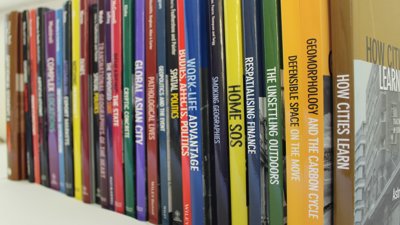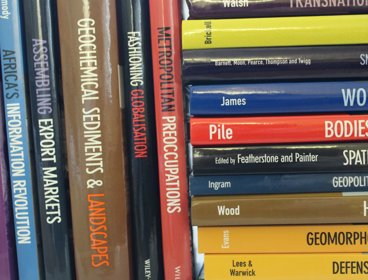By Alison Blunt, Queen Mary University of London
Many journals publish themed or special issues or sections, which bring together a range of articles on a particular subject and are edited by one or more guest editors (see, for example, Area and The Geographical Journal). Some journals have policies about publishing one themed issue or section each year, whilst others might publish them more or less often than this. Guest editing and/or contributing to a themed issue is an excellent way to publish your research and potentially make a significant contribution to a particular field of work.
Conference sessions often provide the starting point for developing a proposal for a themed issue. If you and/or colleagues have identified an original, timely and incisive theme, you should identify the most suitable journal for publication, and write to the editor(s) with a proposal. The proposal should include a title, outline, and list of potential authors, article titles and abstracts. If the journal editor agrees that the proposed issue is one that fits the remit of the journal, and that there is potentially space for an issue or section on this particular theme, the articles are submitted and sent out for review in the normal way (see Research articles). Guest editors usually write an introduction to the issue or section, setting it in a wider context as well as introducing the specific articles.
For a journal editor to accept the proposal for a themed issue does not guarantee that all, or any, of the articles within it will be accepted for publication. The turnaround time for publishing a themed issue can be considerably longer than for a single article, because of the different lengths of time that it takes referees to write reports on each article, the different requirements for revision, and because not all contributing authors are likely to meet deadlines. Some journals publish each article contributing to special issues online in Early View as soon as they are accepted and the production process is complete (see Research articles). This means that individual papers can be read and cited before all papers in the special section are finalised and published in the print journal. As a guest editor, your role is to liaise with authors and the journal editor about deadlines, completing revisions and the final production process. As an author, you should be realistic about meeting deadlines and responding promptly to required revisions before you agree to write an article for a themed issue.
Whilst the journal editor retains overall editorial control, guest editors have considerable input into developing each of the articles and the coherence of the issue or section as a whole. In many ways, themed issues are similar to edited books, but you will often find that authors are more enthusiastic about writing an article for a journal rather than a chapter for a book, as these are peer-reviewed and generally seen to have a greater impact (see Thinking strategically about publishing).
About this guide
Publishing is a crucial, but sometimes daunting and unexplained, part of academic life. All academic geographers are supposed to do it, but there are few formal guidelines about how best it should be done. Many of us discover how to publish by trial and error or through the mentoring and support of colleagues. Publishing and academic landscapes also change, presenting new challenges to established academics. The publishing and getting read guides have four main aims: to provide clear, practical and constructive advice about how to publish research in a wide range of forms; to encourage you to think strategically about your publication profile and plans; to set out some of the opportunities and responsibilities you have as an author; and to support you in getting your published research read.



